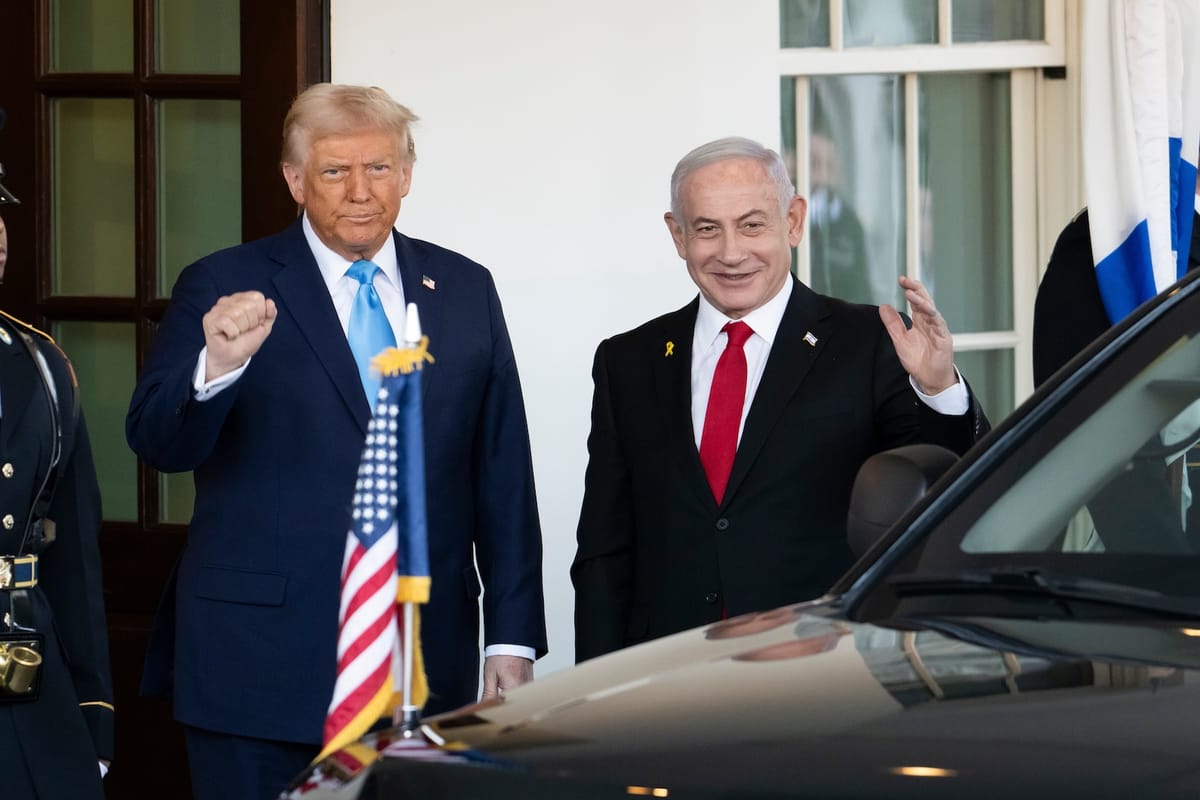

Historic White House Meeting Sets Stage for Trade Shift
Israeli Prime Minister Benjamin Netanyahu met with President Donald Trump at the White House on April 7, marking a pivotal moment in U.S.-Israel economic relations. The hastily arranged visit, prompted by Trump’s recent imposition of sweeping tariffs, saw Netanyahu vow to eliminate the trade deficit between the two nations. Speaking in the Oval Office, he declared Israel would act ‘very quickly’ to dismantle trade barriers and tariffs on American goods, aiming to reset the balance of commerce that has long favored Israel’s exports.
The meeting, Netanyahu’s second with Trump since the president’s January inauguration, underscored the urgency of addressing the 17% tariff slapped on Israeli goods as part of Trump’s broader trade policy. Israel, a key U.S. ally, exports roughly $2.3 billion more to the United States annually than it imports, a gap Netanyahu promised to close. His pledge came after a preemptive move last week, when Israel scrapped all remaining tariffs on U.S. imports, primarily food and agricultural products, in a bid to soften the impact of Trump’s trade measures.
Trump, greeting Netanyahu with a firm handshake, remained noncommittal on lifting the tariffs, noting, ‘Maybe not,’ when asked if Israel’s actions would sway his stance. He emphasized the billions in annual U.S. aid to Israel, suggesting that economic reciprocity was overdue. The exchange highlighted Trump’s hardline approach to trade, a cornerstone of his administration’s agenda to bolster American manufacturing and reduce foreign reliance.
Trade Deficit Roots and Israel’s Response
The U.S.-Israel trade relationship, governed by a 40-year-old free trade agreement, has historically been lopsided. In 2024, U.S. exports to Israel totaled $14.5 billion, while imports from Israel reached $16.8 billion, driven by high-tech services, machinery, and medical equipment. Trump’s tariffs, announced as part of his ‘Liberation Day’ policy, caught Jerusalem off guard, prompting swift action from Netanyahu’s government to preserve its largest trading partner’s favor.
Netanyahu’s commitment to eliminate the deficit hinges on rapid policy shifts. ‘We’re going to eliminate the tariffs and rapidly,’ he said, framing Israel as a potential model for other nations facing similar U.S. levies. Finance Minister Bezalel Smotrich had already moved to cancel duties on American imports days before Trump’s tariff unveiling, a step Netanyahu touted as proof of Israel’s seriousness. Yet, with high-tech services largely exempt from tariffs, the real challenge lies in boosting U.S. goods’ penetration into Israel’s market, a task requiring structural economic adjustments.
The Israeli leader’s urgency reflects domestic pressures as well. The Manufacturers Association of Israel warned that Trump’s tariffs could cost between 18,000 and 26,000 jobs, hitting industries like machinery and medical exports hard. Netanyahu’s Oval Office promise, delivered alongside Trump, aims to preempt such fallout while aligning with the president’s push for fairer trade deals, a priority resonating with American workers and businesses long frustrated by global imbalances.
Gaza War and Hostage Talks Amid Economic Focus
Beyond trade, the April 7 meeting tackled pressing security concerns, including Israel’s 18-month war in Gaza and the fate of hostages held by Hamas. Netanyahu updated Trump on efforts to secure a new hostage release deal, following a fragile ceasefire’s collapse. ‘We’re working on another deal to release hostages that we hope will succeed,’ he told reporters, signaling ongoing negotiations despite his coalition’s resistance to prolonged truces.
Trump praised Netanyahu’s efforts, saying, ‘He’s working very, very hard on freeing the hostages, and is doing a great job.’ The president’s earlier suggestion of a U.S.-led Gaza takeover, coupled with relocating Palestinians, loomed over the talks, though specifics remained vague. Netanyahu lauded Trump’s ‘revolutionary, creative vision’ for post-war Gaza, hinting at discussions on reconstruction and regional stability, potentially involving Arab states willing to accept Gazan refugees temporarily.
The Gaza conflict, sparked by Hamas’s October 7, 2023, attack that killed 1,200 Israelis and seized over 250 hostages, has claimed over 50,000 Palestinian lives, per Gaza health officials. Israel’s military response, intensified after the ceasefire’s end, underscores the dual challenges Netanyahu faces: balancing economic diplomacy with Trump and managing a war that has drawn international scrutiny, including an ICC arrest warrant against him, which the U.S. rejects.
Broader Implications for U.S. Trade Policy
Netanyahu’s visit, the first by a foreign leader since Trump’s tariff rollout, sets a precedent for how allies navigate the president’s economic strategy. Trump touted the tariffs as ‘medicine’ to fix trade disparities, a stance he reiterated beside Netanyahu. ‘Countries wouldn’t have been willing to negotiate if I hadn’t taken these steps,’ he said, pointing to Israel’s swift concessions as evidence of his approach’s efficacy.
Other nations, like Japan and the EU, have signaled readiness to negotiate similar deals, with Japanese officials reportedly planning a U.S. visit to discuss their own tariff relief. Trump’s refusal to pause the levies, despite global market turmoil, reinforces his commitment to reshaping trade on American terms. For Israel, the stakes are high: maintaining robust U.S. ties while safeguarding its export-driven economy, a balancing act Netanyahu framed as a win for both nations.
The Oval Office talks, lasting nearly two hours, also touched on Iran and Syria, with Trump revealing direct U.S.-Iran talks on Tehran’s nuclear program set for April 12. Netanyahu, wary of Turkish influence in Syria post-Assad, welcomed Trump’s offer to mediate with Ankara. These geopolitical threads, woven into the trade discussion, highlight the multifaceted alliance at play, one where economic concessions may bolster strategic cooperation.
Dues are $12 per year. Member benefits:
✅ Ad-Free Website Viewing
✅ Advocacy for Republican Seniors
✅ 120+ Senior Discounts
✅ Member Only Newsletters